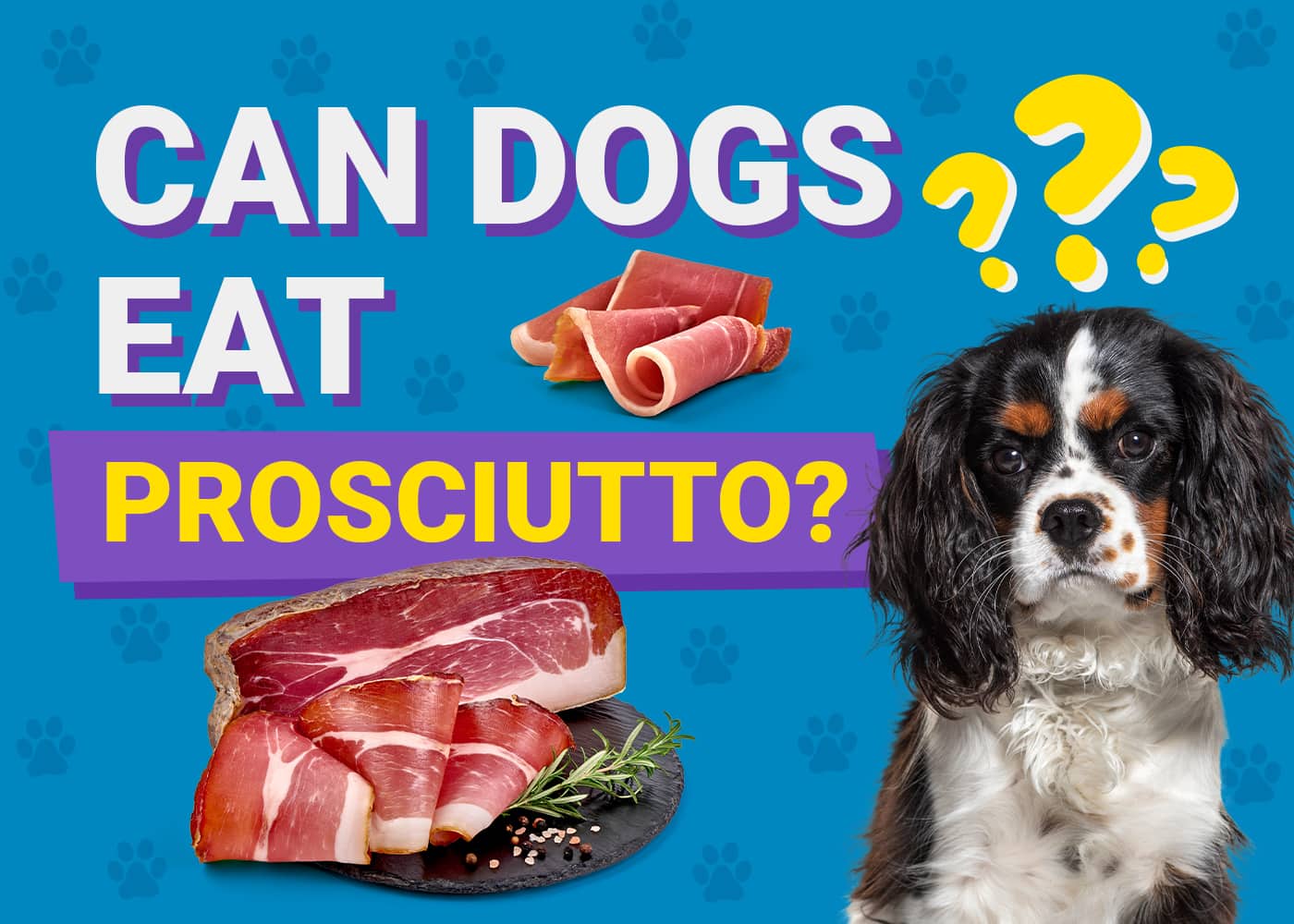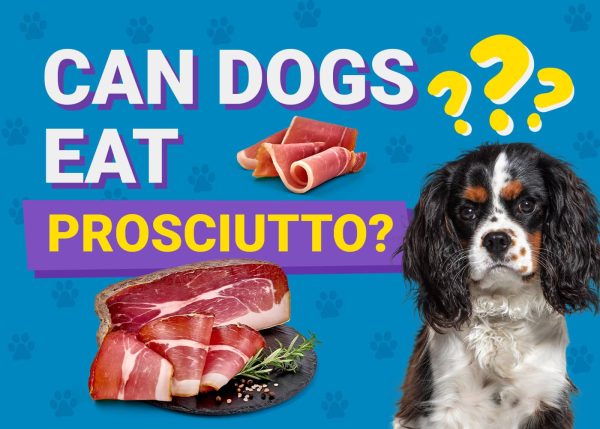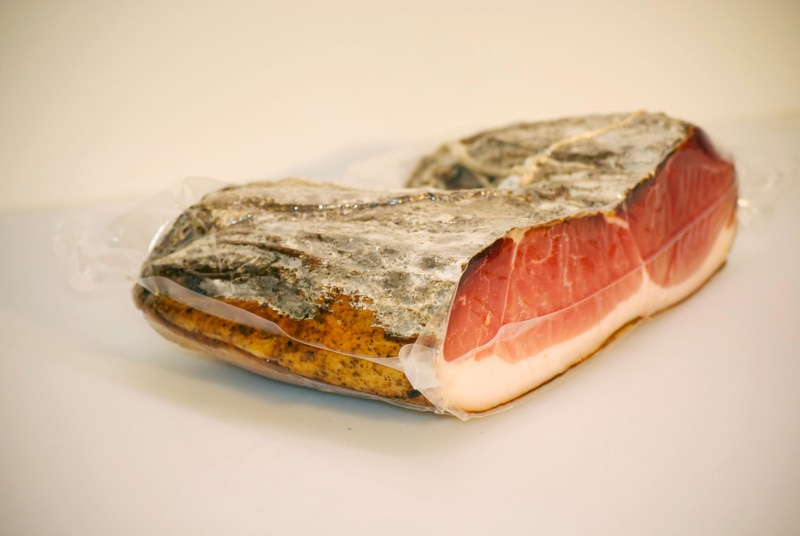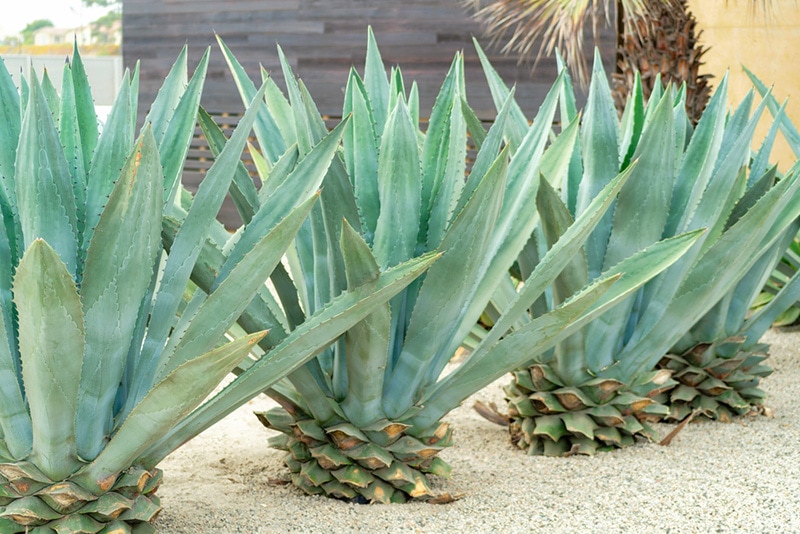Prosciutto is the Italian word for uncooked and dry-cured ham, which is a processed human food that is made from pork. This deli meat is often eaten on crackers or bread, and it was originally intended for human consumption.
Some dog owners may feed prosciutto to their dogs too because there is a misconception that any type of meat is safe for dogs. Dog owners may think that prosciutto is healthy for their dogs because it is meat, while also being quite tasty for dogs. You should not feed prosciutto to your dog.
Before feeding prosciutto to your dog, it is important to consider the pros and cons of feeding such highly processed deli meat to your dog, which we will discuss in this article.
Is Prosciutto Safe for Dogs?
While dogs can eat a small amount of prosciutto without being harmed, it is not a good food for your dog and should be avoided. Prosciutto contains a large amount of salt and fat, both of which are unhealthy for dogs to consume.
Most store-bought prosciutto from the deli section of a store will contain nitrates or nitrites, which are dangerous for dogs. Nitrates and nitrites are used for preserving the prosciutto, as they have antibacterial properties, while also giving a distinctive pink coloration to the meat.
The nitrates are used to naturally preserve the prosciutto, but they can be harmful to dogs when fed in high amounts or too often. To make prosciutto more appealing to humans, there may also be added spices to improve the meat’s taste, and certain spices can be bad for your dog to eat. Certain spices such as black pepper and paprika are too spicy and can irritate your dog’s mouth and stomach.
Some store-bought prosciuttos may also contain garlic to enhance the meat’s flavor, which is toxic to dogs. Garlic contains thiosulfate, which can cause damage to your dogs’ red blood cells (erythrocytes).
Therefore, it is not recommended to feed prosciutto to dogs, and too much prosciutto can be unsafe for dogs, especially if it contains nitrates or spices.
Is Traditional Prosciutto Safer for Dogs?
Technically, traditional prosciutto is slightly safer for dogs than the highly processed deli variety of prosciutto, but it still contains too much salt to be healthy for dogs. Traditional Italian prosciutto is made from pork from a pig’s hind leg, and it is cured with salt.
The high amount of sodium in these meats is unhealthy for dogs and has no benefit to your dog’s diet. Traditional prosciutto also has little to no nitrates or nitrites in the meat in comparison to store-bought prosciutto.
This is usually because the prosciutto is made in the traditional Italian way by being cured in brine or salt, and in many cases, garlic and pepper are added to enhance the flavor of the meat. Salt is necessary for prosciutto, as it works by drawings out excess moisture in the meat and preventing the growth of certain bacteria while it is being dried out.
This makes all types of prosciuttos a high-sodium food that is not ideal to feed to dogs.
Can Dogs Eat Pork?
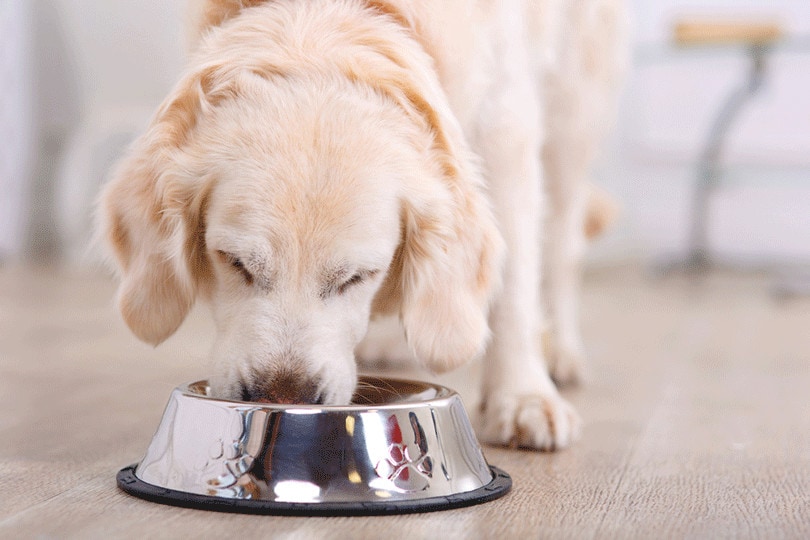
Since prosciutto is made from pork, which is not harmful to dogs and can be quite healthy if it is prepared properly before feeding, many dog owners may assume that prosciutto is safe for dogs.
However, just because it is meat does not mean that is a safe or healthy snack for your dog. Pork itself is safe to feed to dogs if it is unseasoned and cooked thoroughly, but the process pork goes through to turn into prosciutto makes it unhealthy for dogs.
Pork will be cured in a high amount of salt, preserved with nitrates or nitrites, and sometimes seasoned with spices before it becomes prosciutto, and none of these food enhancements are safe or healthy for your dog to eat.
This means that no cured meats will be safe for dogs, as the high levels of salt are not safe to feed to your dog in large quantities or too often.
Why Is Prosciutto Bad for Dogs?
- Contains high levels of salt, which can lead to dehydration or sodium poisoning. Sodium poisoning can cause diarrhea, vomiting, dehydration, and tremors in dogs.
- Store-bought prosciutto contains high levels of nitrites and nitrates from the preservatives.
- In comparison to other meats, prosciutto has a high fat content which can make it difficult for your dog to digest.
- Cured meats like prosciutto typically contain spices such as garlic and pepper, with pepper being an irritant and garlic being toxic to dogs.
- Uncooked pork or prosciutto that has not been cured properly can contain harmful bacteria that are dangerous for both dogs and humans.
- You may also be interested to know: Can Dogs Eat Croissants?
Summing Up
Don’t worry if your dog has already eaten a piece of prosciutto or perhaps stolen it off the table as you were serving it to guests. Your dog won’t be harmed by ingesting a small amount of prosciutto unless it contains garlic or another toxic ingredient. However, they will become very thirsty, so it is important to give them plenty of fresh water.
If your dog is acting abnormally after ingesting prosciutto or they have consumed a large amount, they should be taken to a veterinarian immediately.
See also:

